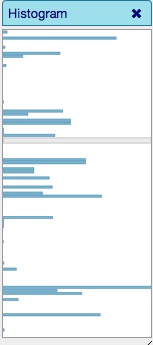Diary of a Visiting Assistant Professor, week 33: Wikipedia Pitfalls, Anticipated and Not
Last week I posted about an assignment in my Romanticism class, part of which requires students to add to Wikipedia’s glossary of literary terms, a potentially useful but mostly empty list. Thanks to my students, the list is now significantly less empty than it was a few months ago.
I’m generally pleased with the assignment. At minimum students have learned how Wikipedia works, and I’m convinced they now have a better understanding of the vocabulary of literary study — which was, ultimately, the goal. Nevertheless, I learned some things from this assignment which I’ll definitely apply if and when I use it again (and since I’m considering teaching a course on Wikipedia in the fall, it’s very likely).
First, the pitfall I had anticipated. While students use Wikipedia just about every day, very few had ever contributed. As every faculty member who has ever used any kind of technology in a class knows, just because students interact daily with a tool or website doesn’t mean they’ve ever thought critically about it. So I spent some time on basic editing: in class I showed them how to use the “edit” tab, and when we added citations (see below) I formatted the references myself and emailed them to students to copy and paste. A few still had questions, but the actual act of editing a Wikipedia page didn’t prove much of an obstacle.
What I wasn’t prepared for was that a user — “Green Cardamom” — had taken ownership of the glossary, policing it to ensure entries meet all the guidelines. I knew that Wikipedia pages require citations, but partly because I didn’t think glossary definitions really needed to be cited (all the terms already have their own pages, which don’t necessarily cite a source for the definition) and partly because it seemed an unnecessary step for students, I had told them not to stress about including citations. This was bad advice.
From the speed with which she responded, Green Cardamom must subscribe to the page’s rss feed. I created a Juxta a collation of the edits made on January 28th, the date on which the most students contributed. The histogram view clearly shows what’s happening (the blue bars represent differences, and the edits are in chronological order):  As you can see, the progress isn’t linear — edits are being made and deleted (you can see the specifics if you view the collation in juxtacommons). To my students’ chagrin, Green Cardamom was deleting their definitions because they lacked citation. After a brief exchange on the Talk page, I asked my students if they’d be willing to go back and add citations, which they already had (to create their definitions I asked them to consult at least two places.) This class had good rapport with me and with each other, and they were invested in the assignment, so they were happy to do so. It was a lesson for me, though: it had never occurred to me that a person would take responsibility for a certain page, especially a page that remained largely empty. From what I’ve read since, this actually isn’t uncommon, so maybe the real lesson is that I should have done more homework.
As you can see, the progress isn’t linear — edits are being made and deleted (you can see the specifics if you view the collation in juxtacommons). To my students’ chagrin, Green Cardamom was deleting their definitions because they lacked citation. After a brief exchange on the Talk page, I asked my students if they’d be willing to go back and add citations, which they already had (to create their definitions I asked them to consult at least two places.) This class had good rapport with me and with each other, and they were invested in the assignment, so they were happy to do so. It was a lesson for me, though: it had never occurred to me that a person would take responsibility for a certain page, especially a page that remained largely empty. From what I’ve read since, this actually isn’t uncommon, so maybe the real lesson is that I should have done more homework.
Have you encountered a similar roadblock in a digital assignment? How did you handle it?
One student tried citing the Wikipedia entries (which are linked from the glossary), but those citations were quickly deleted because Wikipedia does not reference itself …
Wow, how frustrating! How does one ‘cite’ definitions of literary terms already in use?